Sharing with The Gioi and Viet Nam Newspaper on the occasion of World Teachers' Day (October 5), Professor Nguyen Lan Dung said that in a world full of fake information, teachers need to have high professional ethics to guide students to the right values and help them become responsible citizens.
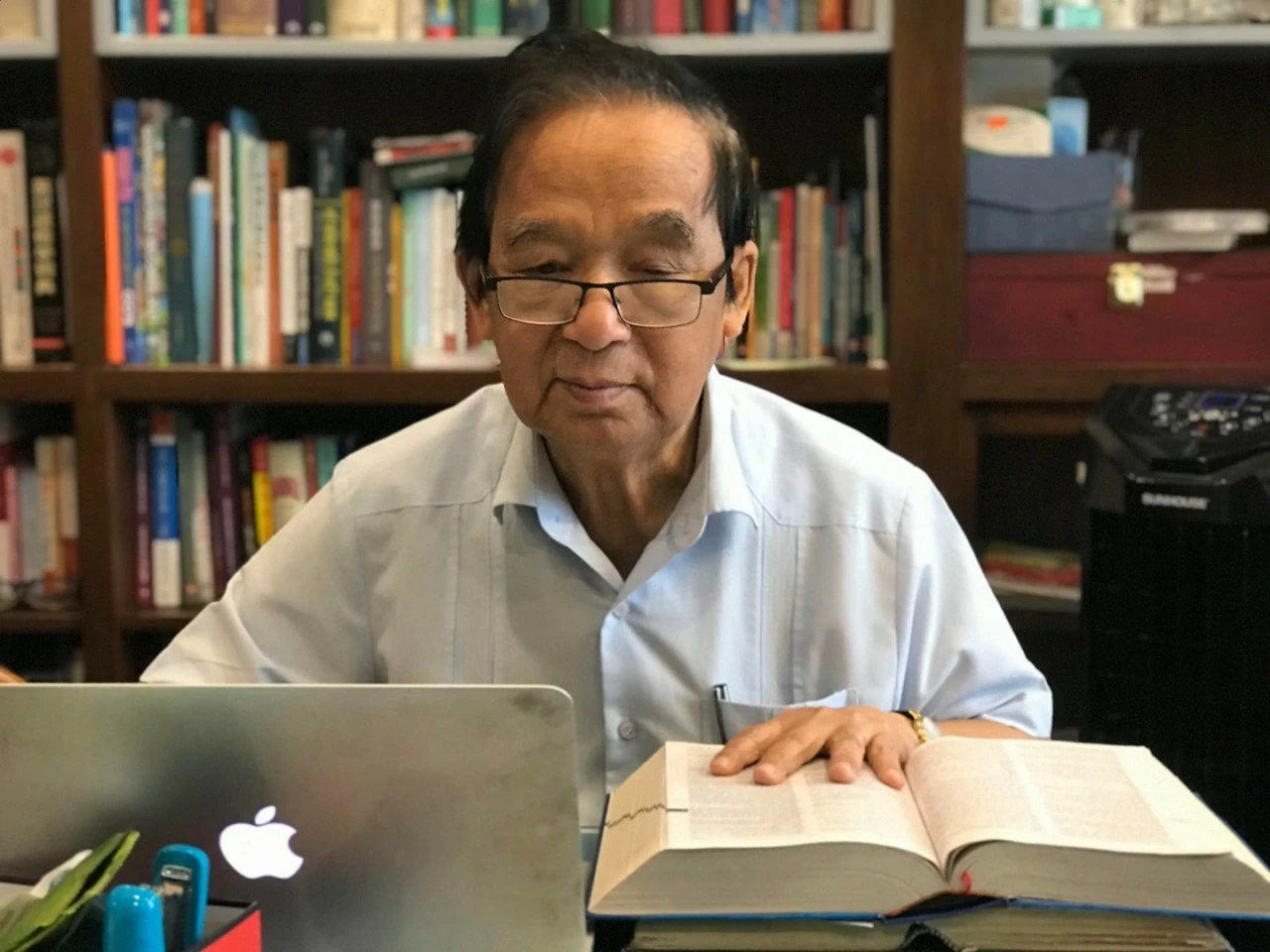 |
| Professor, People's Teacher Nguyen Lan Dung said that these changes pose new requirements and at the same time create new opportunities for the role of teachers. (Photo: DDK) |
Education is the foundation of civilized society.
From the perspective of an experienced teacher, what do you think is the significance of the teaching profession to society and the development of the country?
The significance of the teaching profession to society and the country is immense. Teachers are the ones who sow the seeds of knowledge and nurture the souls of the young generation. They impart knowledge and skills, helping students develop comprehensively in terms of intelligence, morality and physical strength. Thanks to that, society has a high-quality human resource, meeting the requirements of development.
Education is the foundation of a civilized society. Through the teaching process, teachers not only impart knowledge but also train students in good qualities such as patriotism, solidarity, sense of responsibility, and respect for the law.
A country with a developed education system is a strong country. A well-educated person will have the ability to be creative, innovative, and contribute positively to the socio-economic development of the country. To do this, teachers help students understand the history and culture of their nation, thereby forming a love for their homeland and country.
Why is the teaching profession so important? Because the teaching profession has a far-reaching influence. The knowledge and skills that students learn at school will affect their future lives, their families, communities and society, and are the foundation for all professions. Regardless of the profession, basic knowledge and life skills are learned at school.
Besides, the teaching profession also plays an orientation role. Teachers are not only the ones who impart knowledge but also the friends and guides for students. Through that, they help students discover themselves and find the right path for the future.
However, teachers face a lot of pressure from teaching, grading, extracurricular activities, etc. Teachers' salaries in many places are still low compared to other professions, leading to a shortage of good teachers.
It can be said that teaching is a noble profession and has an extremely important meaning for society and the country. Each teacher contributes a significant part to the development of the country. For the teaching profession to develop further, the whole society needs to join hands. The State needs to invest heavily in education, increase teachers' salaries, and create better working conditions.
Society respects and appreciates the role of teachers, creating a social environment that respects the teaching profession. Parents and schools educate their children. Teachers must also constantly learn, improve their professional qualifications, and innovate teaching methods.
Teachers constantly learn and innovate
Education has changed a lot over the years. How do you think these changes have affected the role and responsibilities of teachers?
Education is always a process of constant innovation and adaptation to the development of society. In recent years, education has undergone many profound changes, from teaching methods, supporting technology to training objectives. These changes pose new requirements, at the same time creating new opportunities for the role of teachers.
In the past, teachers mainly imparted knowledge to students, but today, it has shifted to developing students' thinking, creativity, problem-solving and life skills. Information technology has become an indispensable part of the teaching and learning process. Therefore, teachers need to master technology to create more dynamic, high-quality and interactive lessons.
In fact, traditional teaching methods have given way to student-centered learning. Teachers become guides, enabling students to explore and construct knowledge on their own. Instead of just assessing through tests, teachers need to diversify their forms to comprehensively assess students' abilities.
| "In the AI era, teachers are not only knowledge transmitters but also guides and companions who help students develop comprehensively. To meet new requirements, they need to constantly learn, innovate and equip themselves with the necessary qualities." |
Nowadays, the role of teachers is increasingly enhanced, not only as a person who imparts knowledge but also as a guide, accompanying students in the process of learning and exploring. They need to design creative lessons, suitable for each student and make the most of technology; diversify assessment forms to accurately assess students' abilities and promptly adjust teaching methods. As responsibility increases, each teacher needs to constantly learn and update knowledge to meet the requirements of the times, master technology to create vivid and effective lessons.
In addition to imparting knowledge, teachers need to equip students with necessary soft skills such as teamwork, communication, problem solving; and building trusting relationships with students to create a positive learning environment. Changes in education have placed new demands on the roles and responsibilities of teachers. To meet these demands, they need to constantly learn, innovate and improve their professional capacity. At the same time, society also needs to create favorable conditions for teachers to be able to fully develop their abilities.
 |
| In the AI era, teachers are not only knowledge transmitters but also guides and companions who help students develop comprehensively. (Photo: Vu Minh Hien) |
What qualities do you think are most important for a teacher in today's era - when Artificial Intelligence (AI) is increasingly developing? How can teachers develop those qualities?
In the era of increasingly developing AI, the role of teachers is not replaced but becomes more important than ever. However, to meet the new requirements of society, teachers must possess special qualities. The most important qualities are the ability to think creatively and solve problems, communication and collaboration skills, adaptability and lifelong learning...
In a world full of information, AI can process data quickly but lacks the ability to think abstractly and creatively. Therefore, every teacher should equip students with these skills so that they can adapt to new situations and come up with unique solutions.
AI can provide information but cannot replace human relationships. Teachers should cultivate good communication skills to create a friendly learning environment, encouraging students to interact and cooperate with each other. AI technology develops very quickly, so teachers need to constantly learn and update their knowledge to be able to guide students effectively.
In a world full of fake news, teachers need to have high professional ethics to guide students with right values and help them become responsible citizens. To develop these qualities, teachers should take training courses. Training courses on pedagogical skills, educational technology and personal development will help teachers improve their professional capacity. Learning about AI will help teachers better understand the opportunities and challenges that this technology brings.
Applying active teaching methods such as project-based learning and cooperative learning will help students develop creative thinking, problem-solving and teamwork skills. Reading books, professional journals and participating in educational research will help teachers update their knowledge and the latest trends in education.
In the AI era, teachers are not only transmitters of knowledge but also guides and companions who help students develop comprehensively. To meet new requirements, they need to constantly learn, innovate and equip themselves with the necessary qualities.
Equip with technology skills
The relationship between teachers and students plays an important role in the teaching and learning process. Can you share your experiences in building an effective teacher-student relationship?
The teacher-student relationship is not simply the relationship between a teacher and a student, but also a key factor that deeply affects the effectiveness of the teaching and learning process. A good teacher-student relationship will create a positive learning environment, encouraging students to be confident, proactive and achieve high results.
Why is the teacher-student relationship important? When a teacher cares and encourages students, they feel valued and motivated to try harder. A good relationship with a teacher helps students feel more secure and confident when asking questions and sharing opinions.
In addition to knowledge, teachers can also help students develop soft skills such as communication, teamwork, problem solving, etc. Teachers are role models for students to follow. A good teacher-student relationship will help students develop good qualities such as respect, responsibility, and compassion. To build and maintain a good teacher-student relationship, both teachers and students need to make efforts.
The teacher-student relationship is an important factor contributing to the success of the teaching and learning process. To build and maintain a good relationship, both teachers and students need to make constant efforts and efforts. Once this relationship is built on the foundation of trust, respect and love, it will bring positive values to both teachers and students.
With the development of information technology, online education is becoming more and more popular. In your opinion, what opportunities and challenges will this bring to the teaching profession in the future?
The development of information technology has brought a revolution to education, especially the rise of online education. This opens up many new opportunities but also poses many challenges for the teaching profession.
In terms of opportunities, online education helps to remove barriers of space and time, allowing learners anywhere in the world to access knowledge. Teachers can create lessons that are tailored to each individual, helping students learn more effectively. Online tools facilitate teachers and students to interact more frequently, increasing engagement. Teachers can use many forms of knowledge transfer such as videos, images, games, making students more interested.
In addition, teachers also face many challenges. Therefore, they need to equip themselves with technological skills to create quality online lectures and interact effectively with students.
Managing an online classroom requires teachers to have special skills to ensure student concentration and discipline. Despite the many interactive tools available, the lack of face-to-face interaction can affect the formation of social relationships and the overall development of students.
In the context of online education development, the role of teachers will change greatly. From knowledge transmitters to instructors. Teachers will become instructors, helping students learn, explore and solve problems on their own. They need to be able to design creative, engaging and appropriate lessons for each student; create a positive learning environment, encourage students to be confident and proactive. In other words, teachers will play the role of advising students on career orientation and personal development.
To adapt to changes in education, teachers need to continuously learn, improve their professional capacity and technology skills. At the same time, education managers need to create conditions for teachers to be trained and fully equipped with the necessary tools.
Thanks GS!
Source: https://baoquocte.vn/gs-ngnd-nguyen-lan-dung-nha-giao-can-dinh-huong-cho-hoc-sinh-tro-thanh-cong-dan-co-trach-nhiem-288550.html








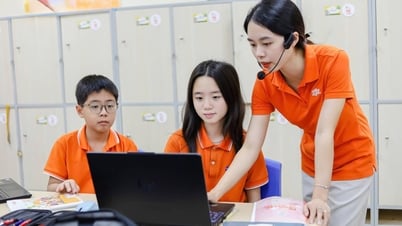

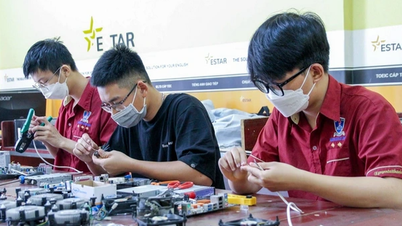





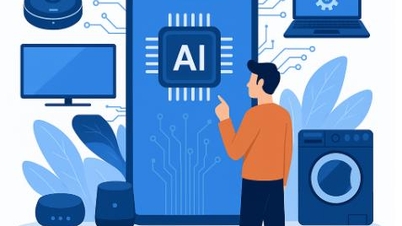

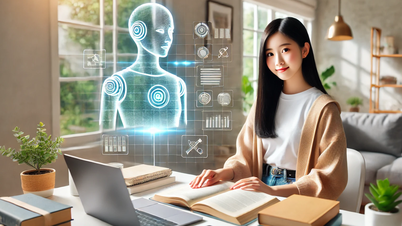



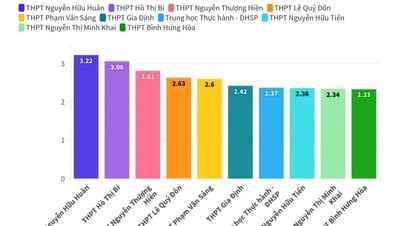
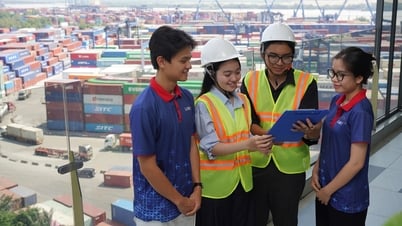
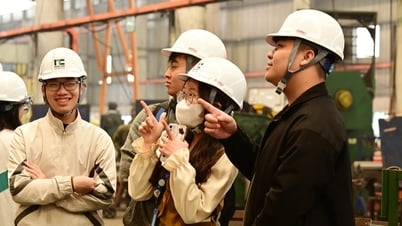











































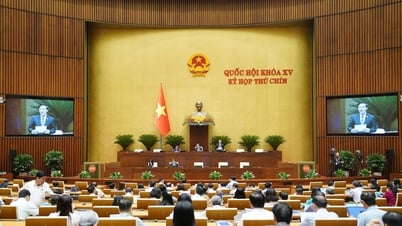










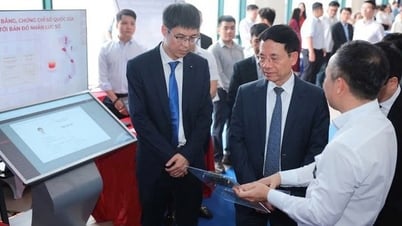

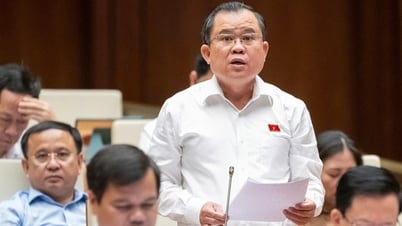







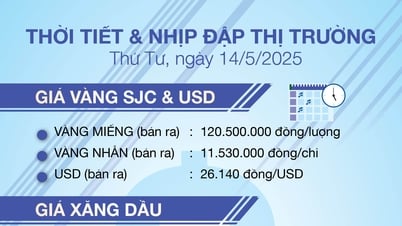

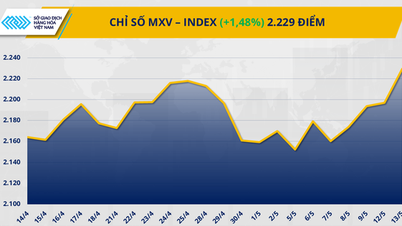








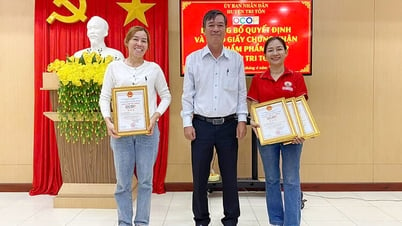



Comment (0)